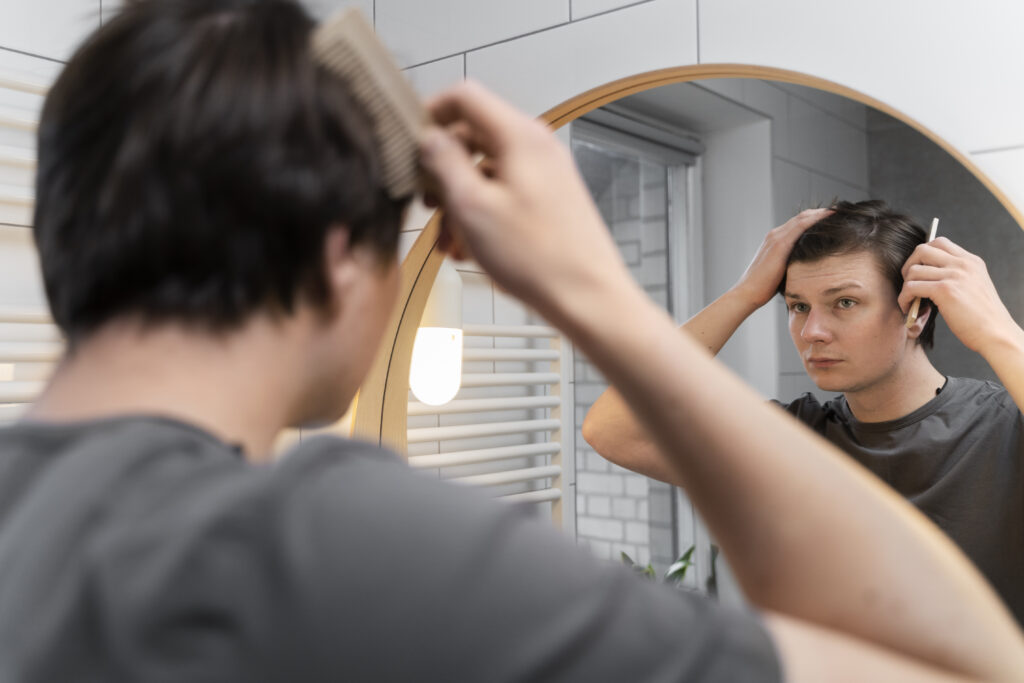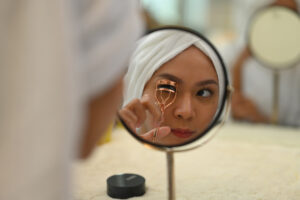Freaking Out About Your Flaws: Body Dysmorphia and You

It’s normal to spend time thinking about your appearance, but for some, these thoughts can take over and make them feel terrible about themselves. Is this low self-consciousness or something more serious like body dysmorphia?
Body Dysmorphia
Body Dysmorphic Disorder is when you become obsessed with something you see as a flaw in your appearance. It might not be noticeable to others. This isn’t about vanity – it’s a mental health condition that can make you feel anxious and self-conscious. This can affect everything from how you socialise to your daily routine, making it difficult to enjoy life.
Common signs of body dysmorphia:
- Spending hours obsessing over your appearance in the mirror or on reflective surfaces
- Constantly comparing yourself to others and putting yourself down in comparison
- Repetitive behaviour like excessive grooming, mirror checking, or skin-picking
- Feeling the need to hide your ‘flaws’ with makeup, clothes, or changing your posture
- Avoiding social situations or activities because you’re worried about the way you look
If you relate to some or all these signs, it doesn’t mean you have body dysmorphia. But if these things affect your life negatively over a long period, it’s worth speaking to your doctor to see what help is available.
Tackling self-consciousness
Being self-conscious doesn’t mean you have body dysmorphia. It’s normal to feel unhappy with your appearance sometimes. Here’s some tips that could help:
Reality check
Step away from the mirror (or your front-facing camera) for a second. Ask a trusted friend or family member if they see the flaw you’re worried about. It’s likely that they don’t see it in the same way.
Social media detox
Don’t believe everything you see on social media. Those beautiful, edited, filtered photos aren’t real life! Unfollow accounts that make you feel bad about yourself. Fill your feed with people who promote body positivity and celebrate diversity.
Focus on the things you love
Instead of obsessing over flaws, write down what you like about yourself, such as kindness, humour, and talents like sports or arts and crafts. There’s more to you than how you look (or think you look).
Talk it out
Don’t bottle it up. Talking to a friend, family member, therapist, or counsellor can help you see things differently and develop healthier coping mechanisms.
Getting support
If you’re struggling with body dysmorphia, you’re not alone. There are resources available to help you in Wales:
Meic Helpline
Here to listen without judgment. Our helpline is confidential and free, so you can chat about anything bothering you. Call us on 0808 80 23456 or chat to us online. You can also look at our Mental Health and Wellbeing Getting Help pages.
NHS 111 Wales
Providing information and directing you to support options in your area. Call 111 or visit their website for mental health resources.
OCD Action
Offering support and resources for people with OCD and related disorders, including body dysmorphia. You can find information on their website or call their helpline on 0300 636 5478.
Mind Cymru
Offering information and support for various mental health conditions, including body dysmorphia. Check out their website for resources.























